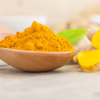Licorice Root: A Soothing Herb for Respiratory Health
Licorice Root: A Soothing Herb for Respiratory Health, derived from the Glycyrrhiza glabra plant, has been used for centuries in traditional medicine for its myriad health benefits. Among its various applications, its role in supporting respiratory health stands out. This blog delves into the properties of licorice root, its effects on the respiratory system, and how you can incorporate it into your wellness routine.
Understanding Licorice Root

Licorice root is not just a sweet treat; it’s a powerful herb with a rich history in herbal medicine. The root has been used in Chinese, Greek, and Ayurvedic medicine to treat various ailments, particularly those related to the respiratory system. Its sweetness comes from glycyrrhizin, a compound that is significantly sweeter than sugar and contributes to many of its therapeutic effects.
Nutritional Profile
Licorice root is packed with a variety of compounds that contribute to its health benefits:
- Glycyrrhizin: Known for its anti-inflammatory and immune-boosting properties.
- Flavonoids: Antioxidants that help combat oxidative stress.
- Saponins: Compounds that have expectorant properties, aiding in the clearance of mucus.
- Essential oils: Provide soothing effects and help reduce inflammation.
These compounds work synergistically to support various body functions, particularly in the respiratory system.
The Role of Licorice Root in Respiratory Health
1. Anti-Inflammatory Properties
One of the most notable benefits of licorice root is its anti-inflammatory effect. Chronic inflammation in the respiratory tract can lead to conditions such as asthma and chronic obstructive pulmonary disease (COPD). This makes licorice root a valuable ally for those suffering from inflammatory respiratory conditions.
2. Expectorant Qualities
Licorice root acts as a natural expectorant, helping to thin mucus in the airways and making it easier to expel. This can be particularly beneficial during colds, flu, or other respiratory infections where mucus production is high. By promoting the clearing of mucus, licorice root helps to alleviate coughing and other symptoms associated with respiratory issues.
3. Immune System Support
A robust immune system is crucial for maintaining respiratory health. Licorice root contains compounds that can enhance the immune response, helping the body to fend off infections. Some studies suggest that it may even have antiviral properties, making it a useful herb during cold and flu season.
4. Soothing Irritation
Licorice root is known for its soothing properties, which can help alleviate irritation in the throat and respiratory tract. It forms a protective layer over the mucous membranes, reducing the discomfort often associated with coughs and sore throats. This makes it an excellent choice for those experiencing respiratory discomfort due to allergies, pollution, or other irritants.
How to Use Licorice Root
1. Teas and Infusions
One of the simplest ways to consume licorice root is by making tea. To prepare a soothing licorice root tea:
- Ingredients: 1-2 teaspoons of dried licorice root, 1 cup of boiling water.
- Instructions: Add the dried licorice root to the boiling water, cover, and steep for 10-15 minutes. Strain and enjoy. You can add honey or lemon for extra flavor.
2. Tinctures and Extracts
Licorice root tinctures or extracts are concentrated forms that can be taken directly or added to beverages. Always follow the dosage instructions provided on the product, and consult with a healthcare professional if you’re unsure.
3. Capsules and Supplements
For those who prefer a more convenient option, licorice root is available in capsule form. This allows for precise dosing without the need to prepare teas or tinctures.
4. Syrups
Licorice root syrups are often used in herbal cough remedies. These syrups can soothe the throat and provide relief from cough and irritation.
Precautions and Considerations
While licorice root offers numerous health benefits, it’s essential to use it with caution. Prolonged use or high doses can lead to side effects, such as:
- Increased Blood Pressure: Glycyrrhizin can cause fluid retention and increase blood pressure. Those with hypertension should avoid high doses.
- Potassium Depletion: Extended use may lead to low potassium levels, causing muscle weakness and other complications.
- Hormonal Effects: Glycyrrhizin may influence hormone levels and is not recommended for those with hormonal disorders.
Consultation with Healthcare Professionals
Before starting any new herbal remedy, especially for those with pre-existing health conditions or those who are pregnant or breastfeeding, it’s crucial to consult with a healthcare professional. They can provide guidance tailored to your specific health needs.
Conclusion
Licorice root is a potent herb with a long history of use in supporting respiratory health. Its anti-inflammatory, expectorant, and soothing properties make it an excellent natural remedy for various respiratory issues. Whether consumed as a tea, tincture, or supplement, licorice root can play a valuable role in your wellness routine.
However, like any herb, it’s essential to use licorice root mindfully and consult with a healthcare provider to ensure it’s appropriate for your situation. By incorporating licorice root thoughtfully, you can harness its benefits and support your respiratory health naturally.








Leave a reply